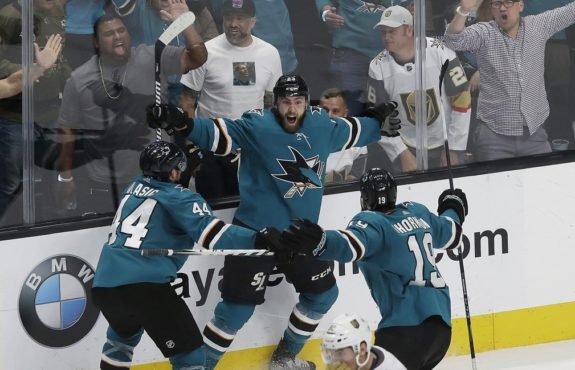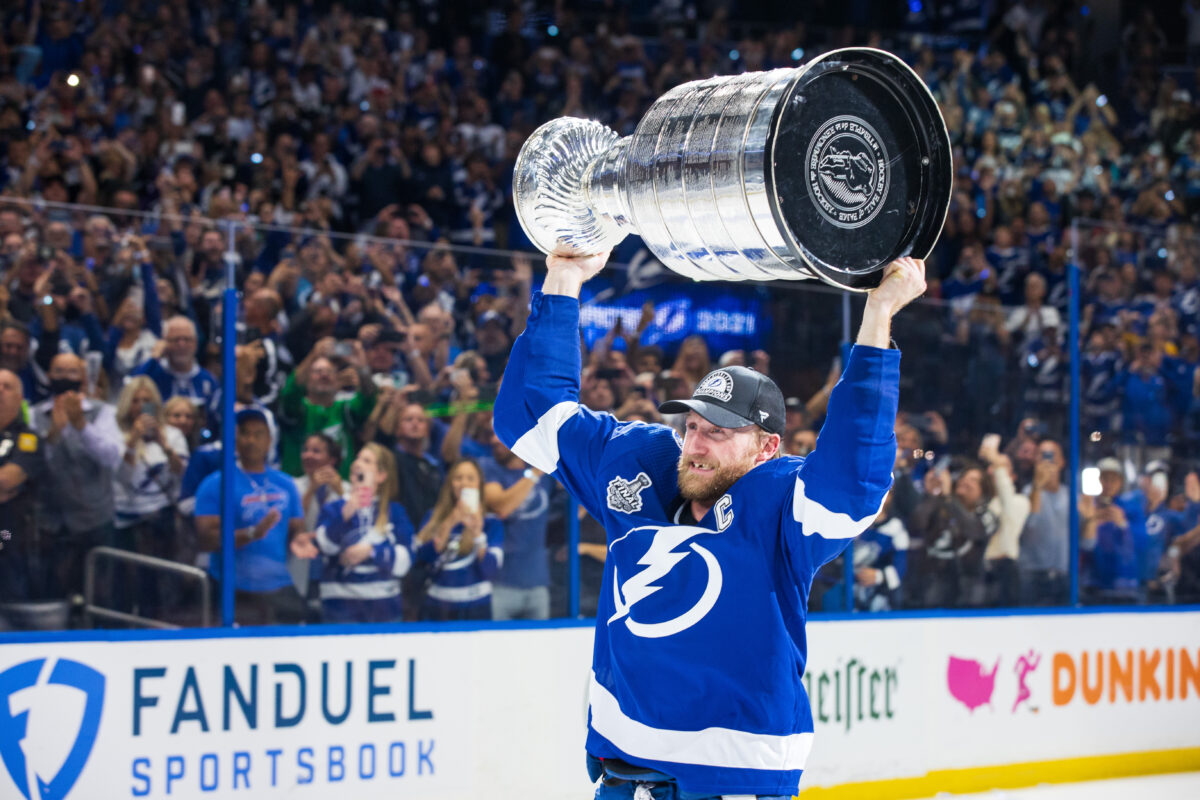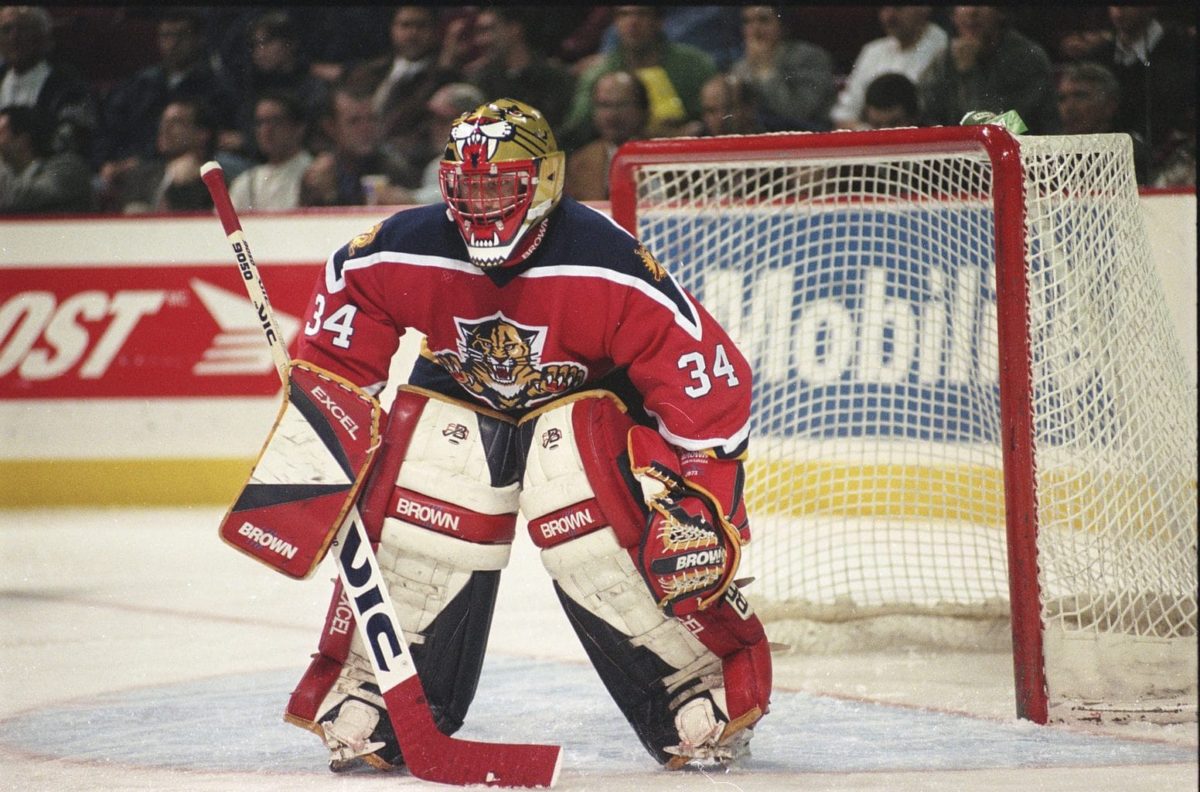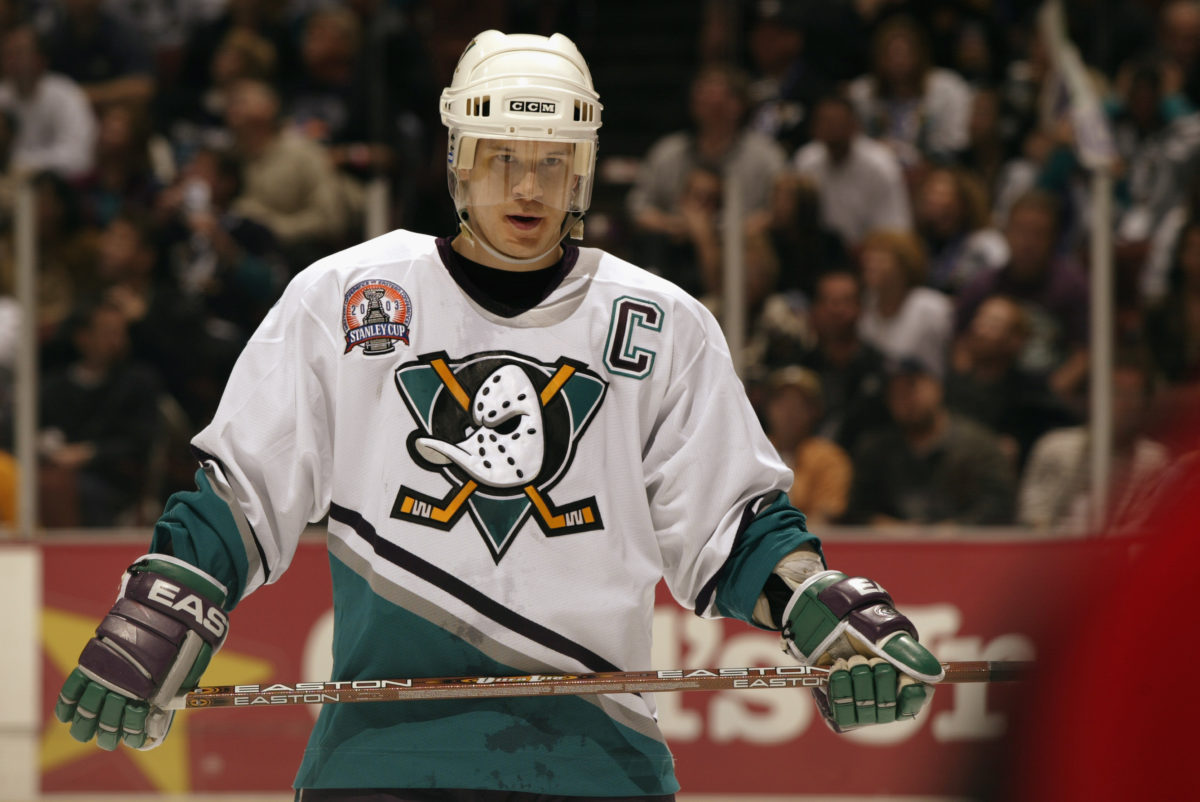The beginning of the 1990s marked a new era for an expanding NHL, as it introduced five new teams in an attempt to grow the game of hockey and its sphere of influence. A little more than 30 years later, there are similarities and differences between these teams, who all made their debuts between 1991 and 1993 in the same circumstances. In this article, I will compare the ups and downs of each team and determine their level of success.
San Jose Sharks
In 1991, the San Jose Sharks became the 22nd team to join the NHL and the first team in that era. But unlike the modern Vegas Golden Knights expansion team, they had a rocky start. Their inaugural season saw them put up 17 wins in 80 games, good for last place in the league. Their following season wasn’t any better, as they finished with only 11 wins. The rest of the 1990s would see them either end at the bottom of the league or get eliminated early in the playoffs. However, the Sharks in the midst of the 2000s and through the 2010s were the teams fans remember the most.

With the second-overall pick of the 1997 Entry Draft, the Sharks selected Patrick Marleau. The Swift Current native currently holds the team’s record in goals (522), points (1,111) and games played (1,607). To say that he was a pivotal player for the Sharks would be an understatement. In the middle of the 2005 season, Marleau would get some help with the acquisition of Joe Thornton from Boston in exchange for Wayne Primeau, Marco Sturm and Brad Stuart. Thornton ended up winning the Hart Trophy and the Art Ross Trophy, making him the only eventual winner of both trophies in the league’s history to be traded mid-season.
Together, these two future Hall of Fame inductees would be the face of the franchise for seasons to come. The Sharks currently boast 1,124 wins, 1,001 losses, 121 ties and 192 overtime/shootout losses, giving them the second-best winning percentage among early 1990s expansion teams. Unfortunately, the postseason was a different story for them. While they made them quite often, they only won 20 of the 41 series they appeared in. They also only made their first Stanley Cup Final (SCF) appearance in 2016, where they were bested by Sidney Crosby and Evgeni Malkin’s Pittsburgh Penguins. The Sharks are currently in the middle of a rebuild and look forward to having an impact player with the fourth-overall pick in the 2023 Draft.
Ottawa Senators
The Senators, who joined in 1992 alongside the Tampa Bay Lightning, had a similar fate as the Sharks. In their disastrous inaugural season, they would finish with 10 wins. Luckily for them, they would draft a generational talent in Alexandre Daigle. What a blessing for the Senators to already have the face of the franchise for years to come on their team. Daigle would certainly make the headlines for years, but not because he was the most talented player on the team. He still makes the headlines as one of the biggest draft busts of all time. On a more positive note, after a bit more losing, the Sens were iconic in the midst of the 2000s and through the 2010s.
In the 1994 Draft, the Senators would pick winger Daniel Alfredsson in the sixth round. The Swede, nicknamed ‘Alfie,’ changed the entire franchise and would end up as a long-time team captain and one of the first names that comes to the Senators fans’ minds when they think of their alumni. He leads the team all-time in goals (426), assists (682) and points (1108) and is two games short of beating Chris Phillips’ all-time games played record of 1,179. The 2006-07 team, which also included Dany Heatley and Jason Spezza, would be the only one to make an SCF appearance. Unfortunately, they would lose in five games to another team mentioned later on this list.
Another notable era for Senators fans was the ‘Erik Karlsson era’. The 2016-17 edition of the team, which also included Mike Hoffman, Mark Stone and Craig Anderson, would be one goal away from a second SCF appearance in history. But just like the Sharks the season before, the Penguins would seal their fate by one overtime goal in the seventh game of the Eastern Conference Final (ECF). This lone goal sent the Senators spiraling, as they have failed to make the playoffs ever since.

Overall, the team has the worst regular season win percentage among expansion teams from the early 1990s, with 1,043 wins, 1,017 losses, 115 ties and 184 overtime/shootout losses. They’ve also played in the second-least playoff series and have an 11-16 record in the postseason. Luckily for them, the new core of players in Tim Stutzle, Brady Tkachuk and Thomas Chabot can put them back on a competitive footing for seasons to come.
Tampa Bay Lightning
If this article were written in 2002, this is what would be said about the Lightning: they’re not succeeding as a franchise. They’ve only qualified for the playoffs once in their first ten seasons and haven’t had many star players during that time. But that statement would be incorrect over the next 21 years, as the Lightning established themselves as a winning franchise and the best out of the five early 1990s expansion teams.
The first big splash for the team was when they won the Stanley Cup in their first finals appearance by defeating the Calgary Flames in seven games. That year, Conn Smythe Trophy winner Brad Richards was accompanied by stars such as Martin St. Louis and Vincent Lecavalier, who were young rising stars, and Dave Andreychuk, who was nearing the end of his career. St. Louis and Lecavalier continued to lead the way in the following seasons, but the results weren’t in their favor. The team would eventually enter another rebuild, making fans wait a long time for greatness. But when it arrived, it stuck around.
The 2008 Draft saw Tampa Bay draft the face of the franchise in Steven Stamkos. The Markham-born forward led the league twice in goals in his first four seasons. Eventually, he’d also lead the Lightning to another SCF in 2015, where the Chicago Blackhawks would defeat them in six games. Although the loss was deflating, they would continue to build upon the core of Stamkos, Nikita Kucherov and Victor Hedman by drafting Brayden Point and Andrei Vasilevskiy. During the 2018-19 season, this core would set an all-time record in wins but would get swept embarrassingly in the first round by the Columbus Blue Jackets, who themselves had never won a playoff series.

While this was a slap in the face, the next three seasons demonstrated the greatness of the core and established the franchise as one of the most successful in recent memory. The team made it to the SCF three years in a row from 2020 to 2022. In this span of time, they beat the Dallas Stars and Montreal Canadiens but lost the last one against the Colorado Avalanche.
Overall, it’s safe to say that this franchise has been successful. Their regular season record of 1,082 wins, 1,000 losses, 112 ties and 164 overtime/shootout losses ranks in the middle of the pack compared to the rest of the league. However, it’s their 25 series wins in 37 played, five SCF appearances and three Cups that really describe what this team is capable of accomplishing. With their core locked up for many more years, the chances are on their side to continue on that path.
Florida Panthers
One year after the Senators and Lightning joined the NHL, the league added two more teams, one of them being the Florida Panthers. The Panthers have had an interesting and different journey than the four other teams on this list.
Related: Florida Panthers and the History of the Rats
In only their third season, they made the SCF in their first-ever postseason appearance, which marked the first of the five early 1990s expansion teams to accomplish this. Led by John Vanbiesbrouck and Scott Mellanby, the Panthers’ magical run would be halted by a sweep from the powerhouse Avalanche. While the start of their history was looking bright, that hasn’t been the case ever since. The team has only appeared to play in nine total postseasons and failed to win a playoff series for 25 straight years.

This postseason is a different story for the Panthers. Although everyone counted them out early on, they’re still standing as they are currently playing the Golden Knights in the SCF. A lot can be credited to their already existing core of Aleksander Barkov and Aaron Ekblad, as well as to the resurgence of Sergei Bobrovsky in net. However, the major event that propelled them to this position was when Jonathan Huberdeau and MacKenzie Weegar were dealt to Calgary in return for Matthew Tkachuk. This overhaul of the core ignited the last-seed Panthers as they went on to beat the Bruins, Toronto Maple Leafs and Carolina Hurricanes, who were all top-five teams in the league.
Overall, the Panthers haven’t had the greatest of histories so far. While they have a chance to win their first-ever Stanley Cup, they have the worst record in the regular season with 989 wins, 920 losses, 142 ties and 222 overtime/shootout losses. They also have the least playoff appearances of all early 1990s expansion teams, having seven series wins in the 16 they’ve played in. But for now, the world watches as the resilient Panthers trail the Golden Knights in the last round.
Anaheim (Mighty) Ducks
The Anaheim Ducks were founded by the Walt Disney Company and started out as the Mighty Ducks until 2005 in honor of the movie they released in 1992. The Ducks are the only other early 1990s expansion team alongside the Lightning to have won a Stanley Cup. And the team has not had a shortage of good players.
The Ducks first made an SCF appearance in the 2003 postseason. Here, they were led by Paul Kariya, who famously got hit by New Jersey Devils’ Scott Stevens in the sixth game, and Jean-Sebastien Giguere, who famously won the Conn Smythe Trophy despite not being on the winning team. While the loss was deflating, the team would end up beating the Senators in the SCF in five games in 2007 to win it all. Though Kariya wasn’t there anymore, this team had many more star players this time around. This included Teemu Selanne, Scott Niedermayer, Chris Pronger and Giguere, once again.

Their winning team also had two young players who would lead for years to come. Not only did the Ducks have Corey Perry, who scored 50 goals once for them in his career, but also arguably their best player of all-time in Ryan Getzlaf. The Regina-born forward played his whole career for the Ducks and still leads them in points (1,019), assists (737) and games played (1,157). Selanne holds a commanding lead for most goals scored for the Ducks at 457, which is 85 more than the second place on the list.
Among the early 1990s expansion teams, the Ducks have the best winning percentage in the regular season with 1,044 wins, 918 losses, 107 ties and 206 overtime/shootout losses. They’ve played in 29 playoff series, having a 16-13 record along the way. Not bad in comparison to some others on this list. Despite the good years they’ve had, the Ducks are now rebuilding as they have missed the past five postseasons. But they seem to be in good hands with Trevor Zegras, Mason MacTavish and the player they will draft second overall this year to lead the way.
The Upcoming Seasons
In the end, the five teams have had their ups and downs, just like any other franchise. While the Lightning are the clear winners so far, it’ll be interesting to make the same case study on these teams in another 30 years and see if they remain on top.
